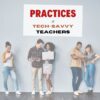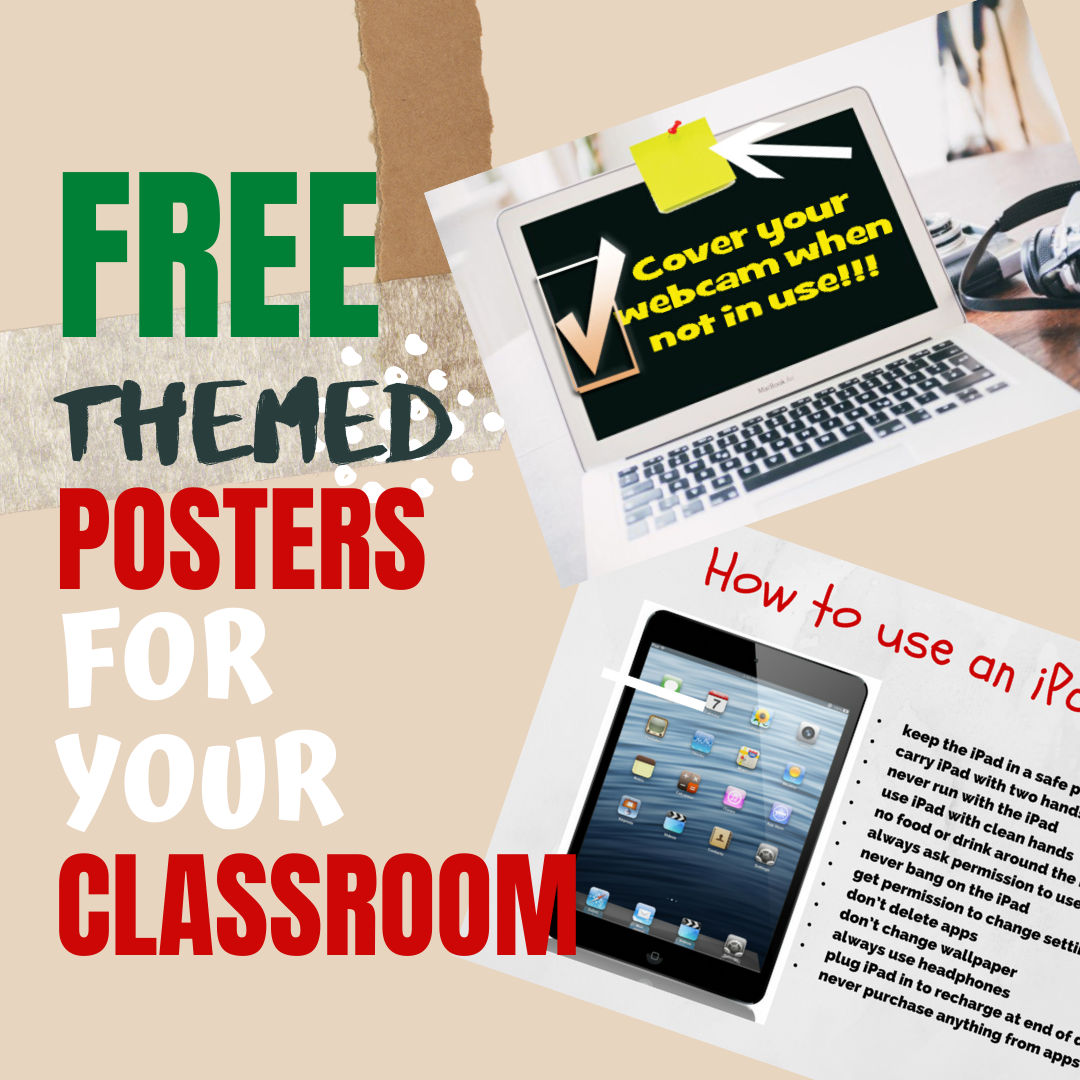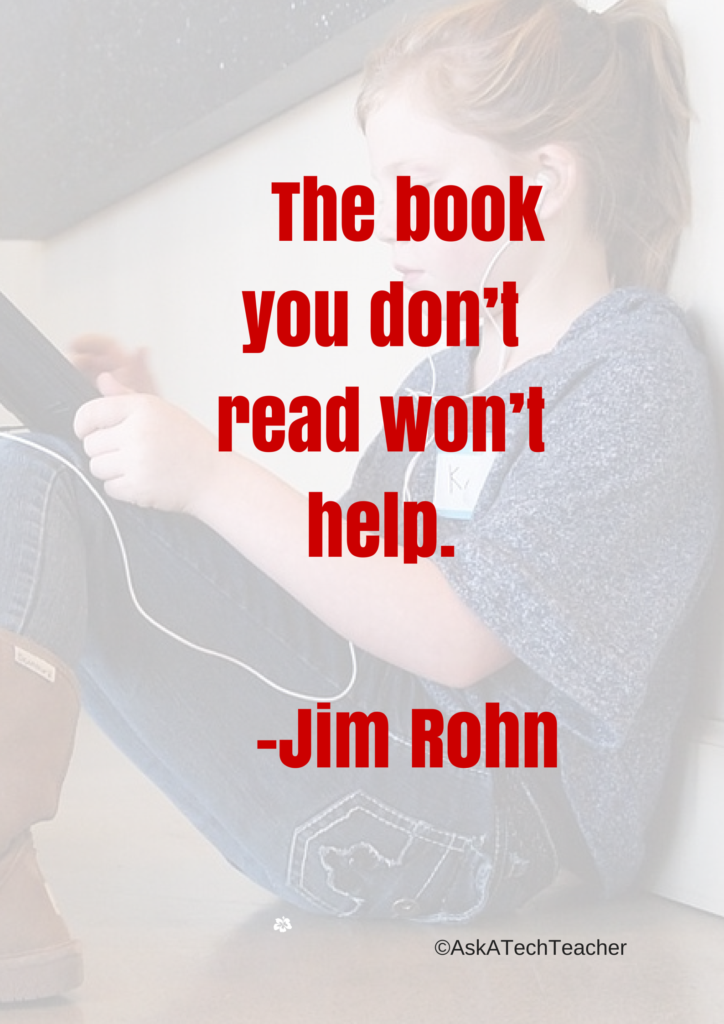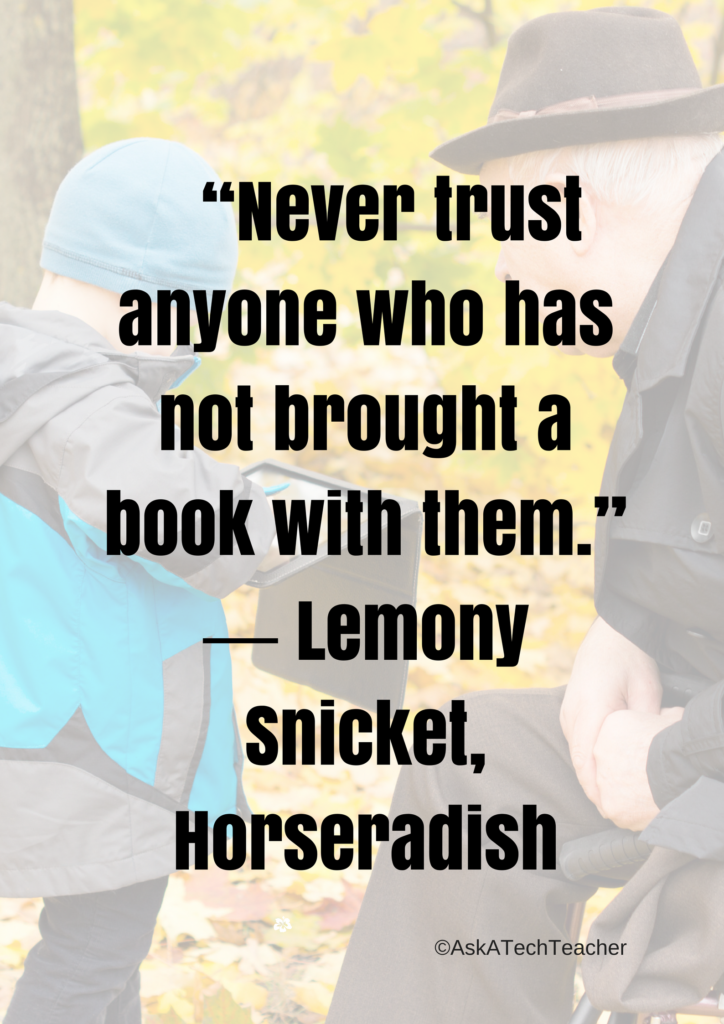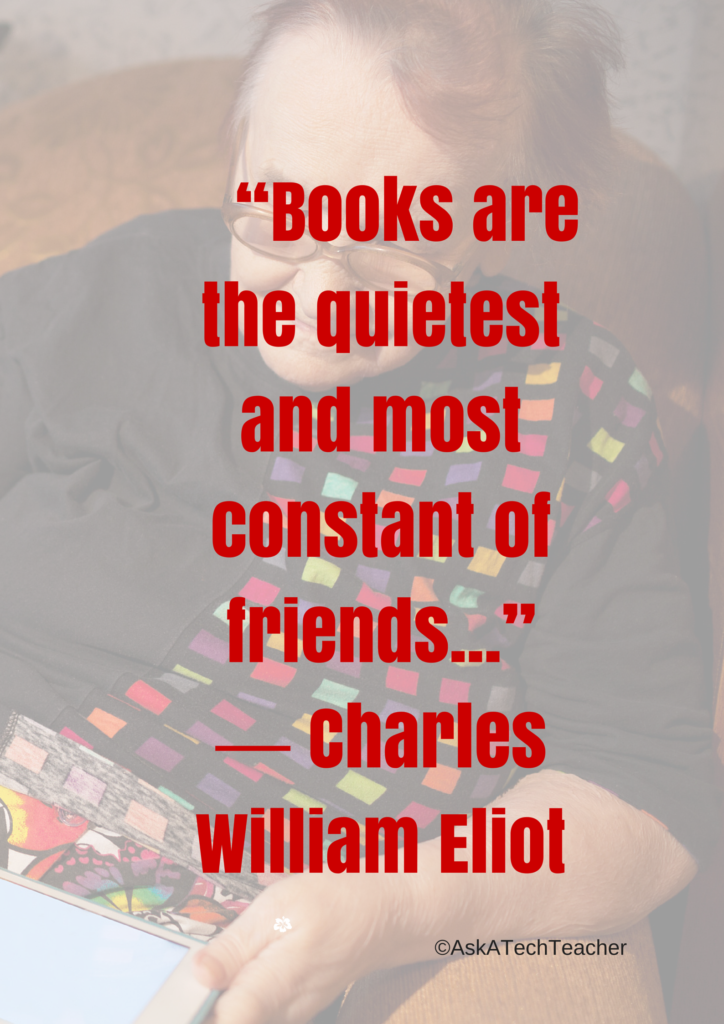Author: Jacqui
Tech Tip #97: Speed up MSO with Quick Access Toolbar
 In these 169 tech-centric situations, you get an overview of pedagogy—the tech topics most important to your teaching—as well as practical strategies to address most classroom tech situations, how to scaffold these to learning, and where they provide the subtext to daily tech-infused education.
In these 169 tech-centric situations, you get an overview of pedagogy—the tech topics most important to your teaching—as well as practical strategies to address most classroom tech situations, how to scaffold these to learning, and where they provide the subtext to daily tech-infused education.
Today’s tip: Speed up MSO with Quick Access Toolbar
Category: MS Office
Q: I tend to do the same actions over and over in MS Office. How do I make that easier?
A: This one will improve the quality of your life immediately.
First, you need Office 2007 or later. Earlier versions don’t include the Quick Access toolbar. Click the drop down arrow (see inset) for the most popular actions–new, open, save, print, etc. Select those you want on the Quick Access toolbar. Toward the bottom is a choice to have the QA toolbar above or below the ribbon. I choose below.
You can also customize it: If there are tools not included that you use frequently (for example, I use strike through a lot), select ‘customize’ and go find it in the endless list.
[gallery type="slideshow" size="large" ids="65303,65305,65304"]Share this:
- Click to share on Facebook (Opens in new window) Facebook
- Click to share on X (Opens in new window) X
- Click to share on LinkedIn (Opens in new window) LinkedIn
- Click to share on Pinterest (Opens in new window) Pinterest
- Click to share on Telegram (Opens in new window) Telegram
- Click to email a link to a friend (Opens in new window) Email
- More
Winter Websites
Here are some Winter activities to share the joy of winter:
- 5 Videos to teach about winter
- Animal Winter Games
- Winter Facts and Worksheets
- The Winter Solstice, from PBS–a video for youngers
- Winter Vocabulary–a video
- What is a Solstice, from National Geographic–a video
- What is the Winter Season–a video
- Winter Coloring Pages, Printables, and more
- Winter Games–digital
Share this:
- Click to share on Facebook (Opens in new window) Facebook
- Click to share on X (Opens in new window) X
- Click to share on LinkedIn (Opens in new window) LinkedIn
- Click to share on Pinterest (Opens in new window) Pinterest
- Click to share on Telegram (Opens in new window) Telegram
- Click to email a link to a friend (Opens in new window) Email
- More
Managing Difficult Parents
Student success depends mightily on three pieces: student, teacher, parent. But there are times as teachers we wonder if we are communicating effectively with parents. Teaching Channel addresses this in this fascinating article:
10 Ways to Manage Difficult Families
Middle School Math Teacher, Kelly Ann Ydrovo recently completed Learners Edge continuing education Course 859: Parent Trap: Achieving Success with Difficult Parents & Difficult Situations and outlined her top 10 strategies for dealing with difficult family members and difficult situations. Check out her tips below to help you establish positive, constructive relationships with the family members of your students.
Here are articles from Ask a Tech Teacher that our readers have found useful:
8 Ways Parents and Teachers Support Remote Teaching
Teaching Basic Cybersecurity Measures To Everyday People (For Parents of Digital Natives)
How Do Non-Techie Parents Handle the Increasing Focus of Technology in Education?
Share this:
- Click to share on Facebook (Opens in new window) Facebook
- Click to share on X (Opens in new window) X
- Click to share on LinkedIn (Opens in new window) LinkedIn
- Click to share on Pinterest (Opens in new window) Pinterest
- Click to share on Telegram (Opens in new window) Telegram
- Click to email a link to a friend (Opens in new window) Email
- More
Digital Literacy–Too Important to Skip
When testing moved online, it became painfully apparent to teachers how little students knew about using digital devices other than the internet, some apps, and iPads. The focus on online learning, thanks to COVID, has made that even more critical. IT Pro has an interesting article discussing the importance of digital literacy:
Digital literacy is as important as reading and writing, Vodafone claims
A study from the company found that half of 18-24-year olds have limited access to a laptop, tablet or PC
Digital literacy is becoming as important as reading and writing for young people’s future life prospects, a new report from Vodafone has found.
Limited access to an internet-connected device, or a lack of skills to use one, is preventing those entering the job market from attending online lessons or exams, applying for jobs, and gaining the necessary digital skills for many of today’s roles.
Ask a Tech Teacher has several articles on this topic that you’ll find interesting:
- How to Assess Digital Literacy
- Digital Literacy–What is it?
- Beyond Digital Literacy: How EdTech Fosters Children’s Social-Emotional Development
- 5 Strategies to Assess Student Knowledge
If you need guidance understanding how to make your students good digital citizens, check out my upcoming online class, Building Digital Citizens. It’s for college credit and starts next Monday!
@ITPro #digcit
Share this:
- Click to share on Facebook (Opens in new window) Facebook
- Click to share on X (Opens in new window) X
- Click to share on LinkedIn (Opens in new window) LinkedIn
- Click to share on Pinterest (Opens in new window) Pinterest
- Click to share on Telegram (Opens in new window) Telegram
- Click to email a link to a friend (Opens in new window) Email
- More
Build Empathy Among Students
 It used to surprise me that it became the school’s job to teach empathy. Shouldn’t parents do that? The truth is it doesn’t always happen in homes. Since children spend much of their daylight hours in school, it is a logical place to reinforce empathy as a life skill.
It used to surprise me that it became the school’s job to teach empathy. Shouldn’t parents do that? The truth is it doesn’t always happen in homes. Since children spend much of their daylight hours in school, it is a logical place to reinforce empathy as a life skill.
Edsurge has an interesting article, How to build empathy among students, that shares one teacher’s experiences:
Lessons in empathy often are taught with a focus on the individual, rather than the collective community, writes Ka’ua Adams, a ninth-grade English teacher at Kealakehe High School in Kona, Hawaii. In this commentary, Adams suggests strengthening these lessons by shifting individual activities to collective ones and focusing on care instead of skills.
Read on… (may require a free membership)
Ask a Tech Teacher has covered this topic often in the past. Here are some articles you might like:
- How to Put Kindness in Your Classes
- The Importance of SEL to Education Success
- Comics–an underused tool to boost SEL skills
- 9 Ways to Teach Tolerance
Share this:
- Click to share on Facebook (Opens in new window) Facebook
- Click to share on X (Opens in new window) X
- Click to share on LinkedIn (Opens in new window) LinkedIn
- Click to share on Pinterest (Opens in new window) Pinterest
- Click to share on Telegram (Opens in new window) Telegram
- Click to email a link to a friend (Opens in new window) Email
- More
Classroom Travels with Twitter: An Evolution
Most teachers I know have used Twitter in their classes either to communicate with parents, share homework with students, for group study, to research on a topic, crowd source ideas with colleagues, or a myriad of other purposes (click here for more ideas). Ask a Tech Teacher contributor Christian Miraglia, Educational Consultant for T4Edtech, reminds us that how we used it at first is probably not how we use it now:
I Need an Idea, and I Need it Now!
You may remember the JG Wentworth commercial in which frantic customers shout out, “ I need my money, and I need it now!”. I sometimes lacked a plan as a teacher due to an overloaded schedule or mental exhaustion. “I need a lesson idea, and I need it now!” Where did I turn? Twitter. The social media platform became a resource when I was running on empty. Twitter as a classroom resource, you ask? Over the past two decades, Twitter has been a mainstay in my instruction.
How many followers do you have?
I began using Twitter in my classroom soon after its introduction in 2006. I found creative uses for it in my history teaching, even at that time. One group of students created a conversation between Andrew Jackson and the various Native American groups forcibly relocated to the Indian Territory. The discussion was based on the research of primary and secondary documents and was quite creative. Nowadays, there are so many social media platforms that it can be overwhelming to keep track of for teachers. When my students would ask me how many followers I had on my Facebook account and Twitter, I stated I did not know. “Two hundred, three hundred one thousand,” they probed. I would note I had no idea on my Facebook account, but maybe 500 on my Twitter account, and most of them are teachers.
Share this:
- Click to share on Facebook (Opens in new window) Facebook
- Click to share on X (Opens in new window) X
- Click to share on LinkedIn (Opens in new window) LinkedIn
- Click to share on Pinterest (Opens in new window) Pinterest
- Click to share on Telegram (Opens in new window) Telegram
- Click to email a link to a friend (Opens in new window) Email
- More
23+ Websites on Animals
Here are a few of the popular resources teachers are using to teach about animals (click headings for more resources):
Animals
- African animals–research site for these animals
- Alphabetimals–learn the alphabet with animal sounds
- Animals
- Audobon Bird Guide: North America (app)
- BrainPop Jr.
- Herd Tracker–watch the great migrations of East Africa in real time
- Plum’s Creaturizer--create new creatures; build a world around them (app)
- Shape of Life–videos for download
- Virry–animal cams (app)
- Yellowstone animal migrations--video
Dinosaurs
Food Chain
Games
- Animal Games II
- Animal Games III
- Mystery Animal--using Google Home or online, guess the animal in 20 questions
Habitats
Life Cycle
-
- Cockroach Life Cycle and more
Click here for updates to this list.
Share this:
- Click to share on Facebook (Opens in new window) Facebook
- Click to share on X (Opens in new window) X
- Click to share on LinkedIn (Opens in new window) LinkedIn
- Click to share on Pinterest (Opens in new window) Pinterest
- Click to share on Telegram (Opens in new window) Telegram
- Click to email a link to a friend (Opens in new window) Email
- More
Practices of Tech-savvy Teachers
Are you struggling with all the tech required for remote and hybrid teaching? Education Week shares what tech-savvy educators are using to make this work:
5 Practices of Truly Tech-Savvy Teachers
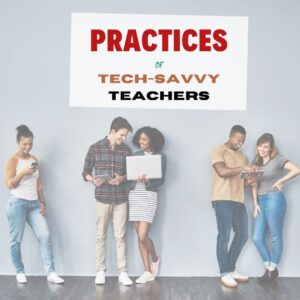 Education Week caught up with select teachers and instructional coaches who shared their thoughts on some essential practices to effectively implement technology into the practice of teaching. Some were discovered or honed during the pandemic. All offer lessons for job seekers wanting to present in-demand knowledge and skills, as well as districts and schools that are seeking truly tech-savvy teachers.
Education Week caught up with select teachers and instructional coaches who shared their thoughts on some essential practices to effectively implement technology into the practice of teaching. Some were discovered or honed during the pandemic. All offer lessons for job seekers wanting to present in-demand knowledge and skills, as well as districts and schools that are seeking truly tech-savvy teachers.
Ask a Tech Teacher has reviewed a list of easy-to-use, intuitive tech tools we think will make your teaching job easier. Check otu these articles:
How to Evaluate Programs You’ve Never Used in Less Than Seven Minutes
Share this:
- Click to share on Facebook (Opens in new window) Facebook
- Click to share on X (Opens in new window) X
- Click to share on LinkedIn (Opens in new window) LinkedIn
- Click to share on Pinterest (Opens in new window) Pinterest
- Click to share on Telegram (Opens in new window) Telegram
- Click to email a link to a friend (Opens in new window) Email
- More
4 (free) Posters About Reading
Every month, we’ll share themed posters that you can share on your website (with attribution), post on your walls, or simply be inspired.
This month: Reading
–for the entire collection of 65 posters, click here
Jacqui Murray has been teaching K-18 technology for 30 years. She is the editor/author of over a hundred tech ed resources including a K-12 technology curriculum, K-8 keyboard curriculum, K-8 Digital Citizenship curriculum. She is an adjunct professor in tech ed, Master Teacher, webmaster for four blogs, an Amazon Vine Voice, CSTA presentation reviewer, freelance journalist on tech ed topics, contributor to NEA Today, and author of the tech thrillers, To Hunt a Sub and Twenty-four Days. You can find her resources at Structured Learning.
Share this:
- Click to share on Facebook (Opens in new window) Facebook
- Click to share on X (Opens in new window) X
- Click to share on LinkedIn (Opens in new window) LinkedIn
- Click to share on Pinterest (Opens in new window) Pinterest
- Click to share on Telegram (Opens in new window) Telegram
- Click to email a link to a friend (Opens in new window) Email
- More
Tech Tip #72: Alt+??? Brings up which Command?
 In these 169 tech-centric situations, you get an overview of pedagogy—the tech topics most important to your teaching—as well as practical strategies to address most classroom tech situations, how to scaffold these to learning, and where they provide the subtext to daily tech-infused education.
In these 169 tech-centric situations, you get an overview of pedagogy—the tech topics most important to your teaching—as well as practical strategies to address most classroom tech situations, how to scaffold these to learning, and where they provide the subtext to daily tech-infused education.
Today’s tip: Alt+??? Brings up which Command?
Category: MS Office, Keyboarding
Q: I always forget the Alt keys for MS Word menu commands. Do you have a list?
A: I’ll do one better. In MS Office, push the Alt key and it tells you what number or letter is associated with which menu command.
To activate the shortcut, push Alt+ exposed letter or number. For example, for Redo, push Alt+3. That’s it.
Sign up for a new tip each week or buy the entire 169 Real-world Ways to Put Tech into Your Classroom.
What’s your favorite tech tip in your classroom? Share it in the comments below.
Share this:
- Click to share on Facebook (Opens in new window) Facebook
- Click to share on X (Opens in new window) X
- Click to share on LinkedIn (Opens in new window) LinkedIn
- Click to share on Pinterest (Opens in new window) Pinterest
- Click to share on Telegram (Opens in new window) Telegram
- Click to email a link to a friend (Opens in new window) Email
- More













